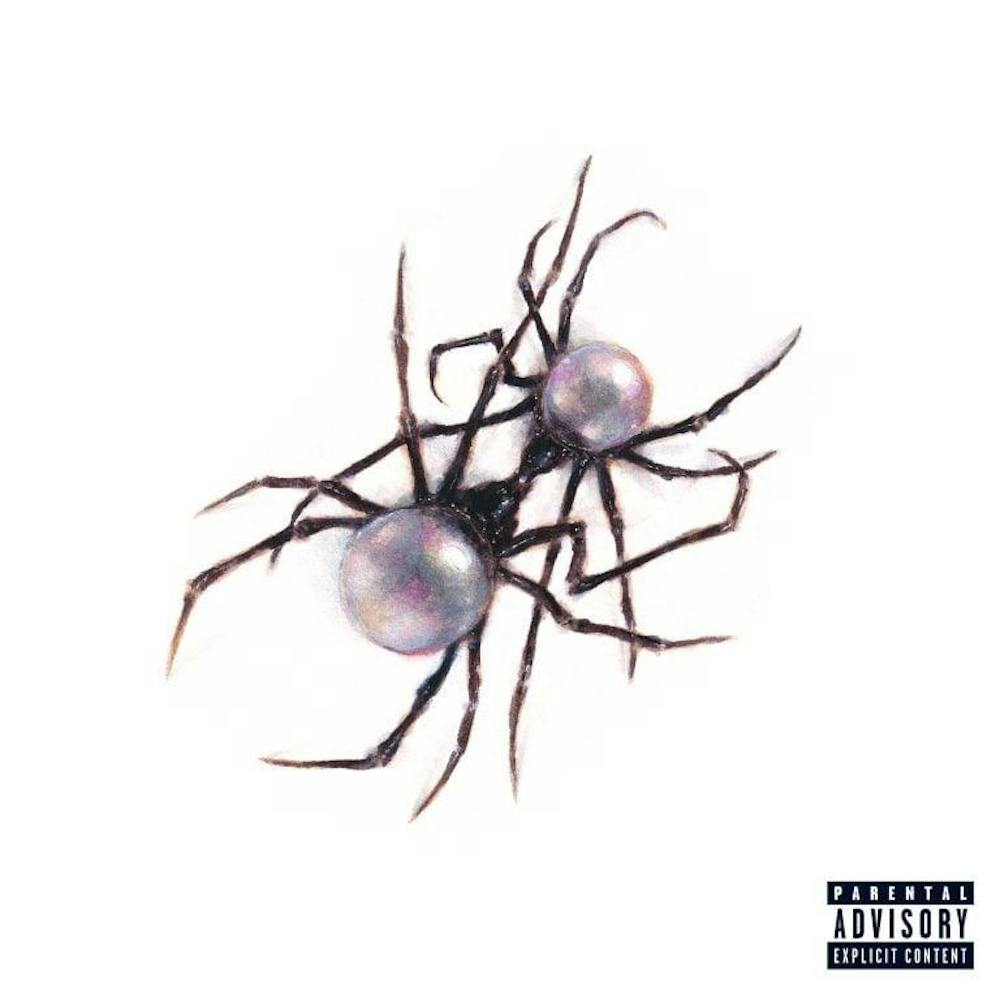Earlier this year, Doja Cat mocked her fans for enjoying her old “mediocre pop” music, suggesting that she had plans to start moving away from the genre in her future projects. Since then, fans have been eagerly awaiting to discover what Doja Cat’s next album would sound like.
After great anticipation, Doja Cat released “Scarlet” on Sept. 22. And while it’s certainly stylistically distinct from her previous releases, the album lacks the infectious, stuck-in-your-head allure that made her records “Hot Pink” (2019) and “Planet Her” (2021) so popular. Doja Cat’s half-baked attempt to escape the confines of pop music is commendable, but her new songs do not impress enough to justify this shift.
The songs on “Scarlet” can be divided into two categories: bold confrontations of Doja Cat’s haters and softer reflections on her satisfaction with life. In toying with these disparate themes, she had the potential to make a dynamic album, but many of the tracks are indistinguishable from each other, making it difficult for listeners to tell where one track ends and the next begins.
Doja Cat opens the album with “Paint the Town Red,” which still has the poppier quality of her earlier work. The song was released as a single Aug. 4 and features a sample of Dionne Warwick’s “Walk on By” looping in the background. With the lyrics, she defends her fame and embraces her status as a wildly successful musician. While the song is catchy, its lack of variation makes it drone on without any interesting developments to keep listeners hooked.
Doja Cat basks in her accomplishments and shuts down her critics in the next two songs. But again, the tracks sound quite similar to each other. In “Demons,” Doja Cat taunts these critics by asking, “How my demons look / Now that my pockets full.” She then flaunts these full pockets in “Wet Vagina,” using her wetness as a metaphor for the fact that she is “dripping” with wealth. While the song signals her attempt at a more rap-oriented style, it ultimately ends up being a lesser-than, girl-bossified version of Cardi B and Megan Thee Stallion’s “WAP."
The album turns Doja Cat’s defenses outward at her competition in the following tracks, “F*ck the Girls (FTG)” and “Ouchies,” in an attempt to establish her stark independence from everyone around her. The energy slows with “97,” whose mellower, R&B tune is overshadowed by how the singer repeats “Looks like we don’t give a s––” over and over again.
The theme of the album switches completely with “Gun.” Full of sexual innuendos — some more subtle than others — the production of the track is reminiscent of the upbeat, effervescent style of her song “Kiss Me More” from “Planet Her.” The next songs, “Go Off” and “Shutcho,” continue this lightness with their airy vocals and easygoing rhythm.
Certain to be one of the most popular tracks from the album, “Agora Hills” is a dreamy anthem about wanting to show off her lover, a stark contrast from the satanic themes Doja Cat embraced for this album’s promotion. By adopting a valley girl-esque intonation during the first verses and inserting cheesy voicemails throughout, Doja Cat almost takes on a brand new persona with this song. Love continues to drive this segment of the record with “Can’t Wait,” in which she sings about all of the things she will do to remain close to her lover. Her hypnotic vocals elevate the chorus, but the song falls into the trap of being too long and too repetitive once again.
Next up on the album are “Often” and “Love Life,” laid-back, rhythmic tracks that successfully satisfy Doja Cat’s goal to break away from pop. But while they may be different from her other discography, there is not enough of a contrast between the two songs. The energy picks up slightly with “Skull and Bones,” the intrigue of which lies beyond the catchy beat and floaty instrumentals. In the lyrics, Doja Cat addresses criticisms that she has sold her soul to the devil to achieve her fame. Dispelling these conspiracy theories, she sings: “The only thing I sold was a record.”
“Attention,” which was released as a single June 16, follows with glittery instrumentals and hypnotic vocals. With this track, Doja Cat seems to be addressing listeners when she says, “You follow me, but you don’t really care about the lyrics.” Earlier this summer, Doja Cat stirred up controversy after scoffing at her fans’ parasocial relationships with her. And after losing almost 200,000 followers on Instagram, she posted that she now felt like a huge weight had been lifted from her. The title, then, is almost seeping with irony — she really wouldn’t mind doing without the attention.
The penultimate track “Balut” is somewhat of a boring wind-down for the album. It joins the monotony of “Often” and “Love Life” and leaves listeners abandoning whatever excitement they may have generated with the previous few songs. She attempts to bring this energy back with “WYM Freestyle,” which revives the confrontational attitude from the start of the album. But what she might have intended to be an explosive finale to her proposed musical revolution ends up just mimicking the same styles of the earlier “Scarlet” tracks. Pared down, “Scarlet” could have made its mark as an innovative triumph in Doja Cat’s discography, but as it stands now, there are too many tracks that get lost in the weeds.
Daphne is an Arts & Culture writer from Austin, Texas. She is planning on studying International and Public Affairs. Her passions include cats, running and Phoebe Bridgers.





